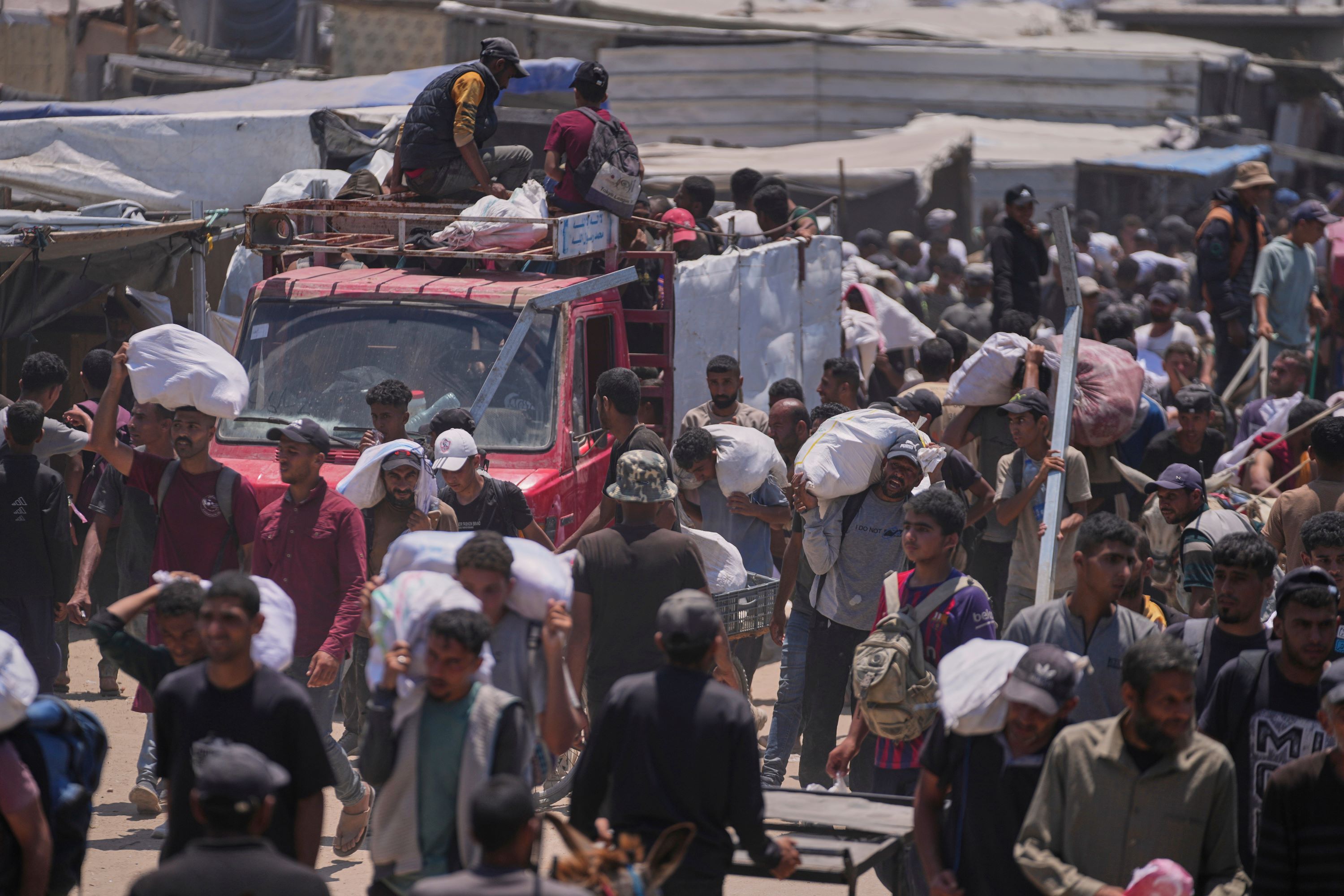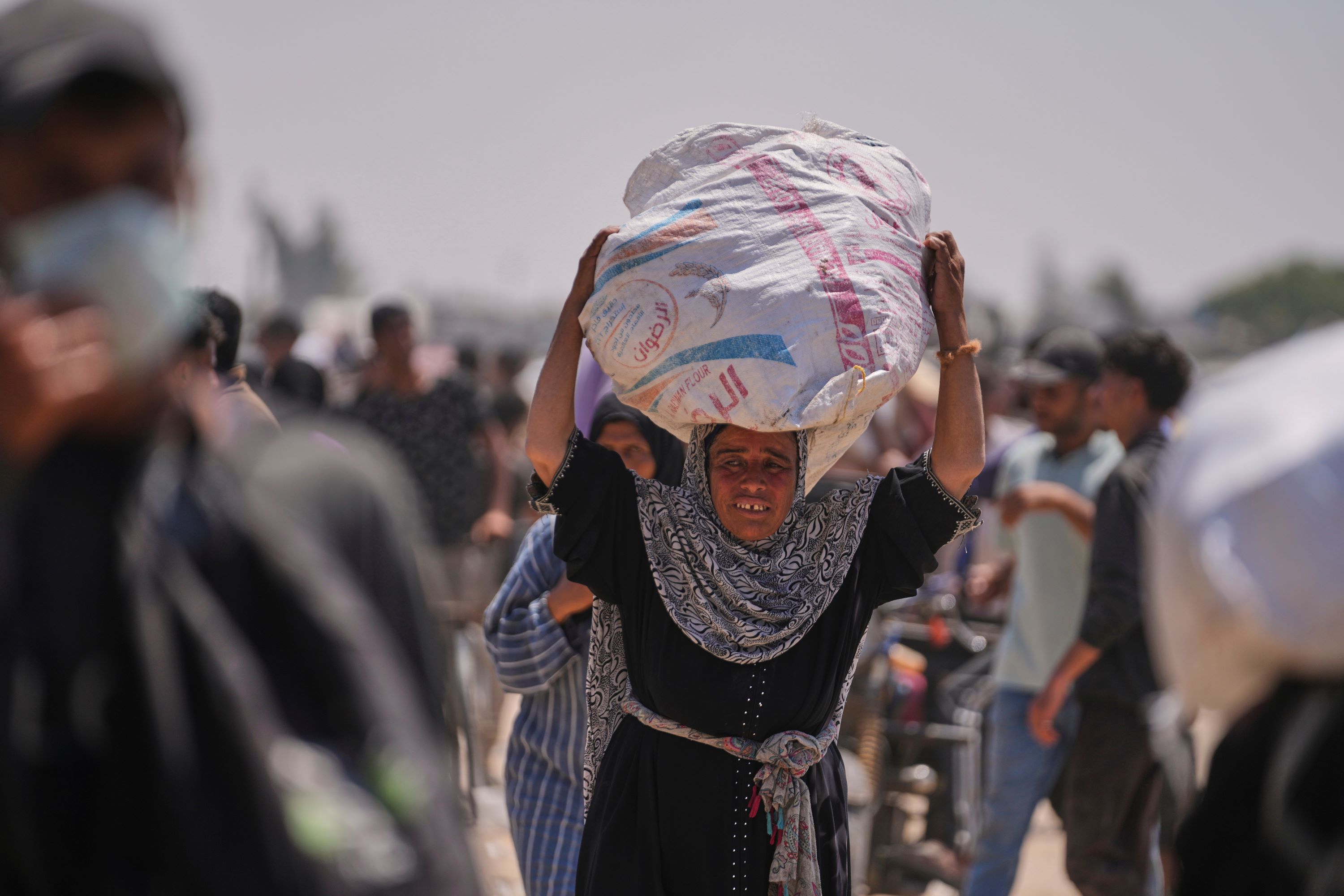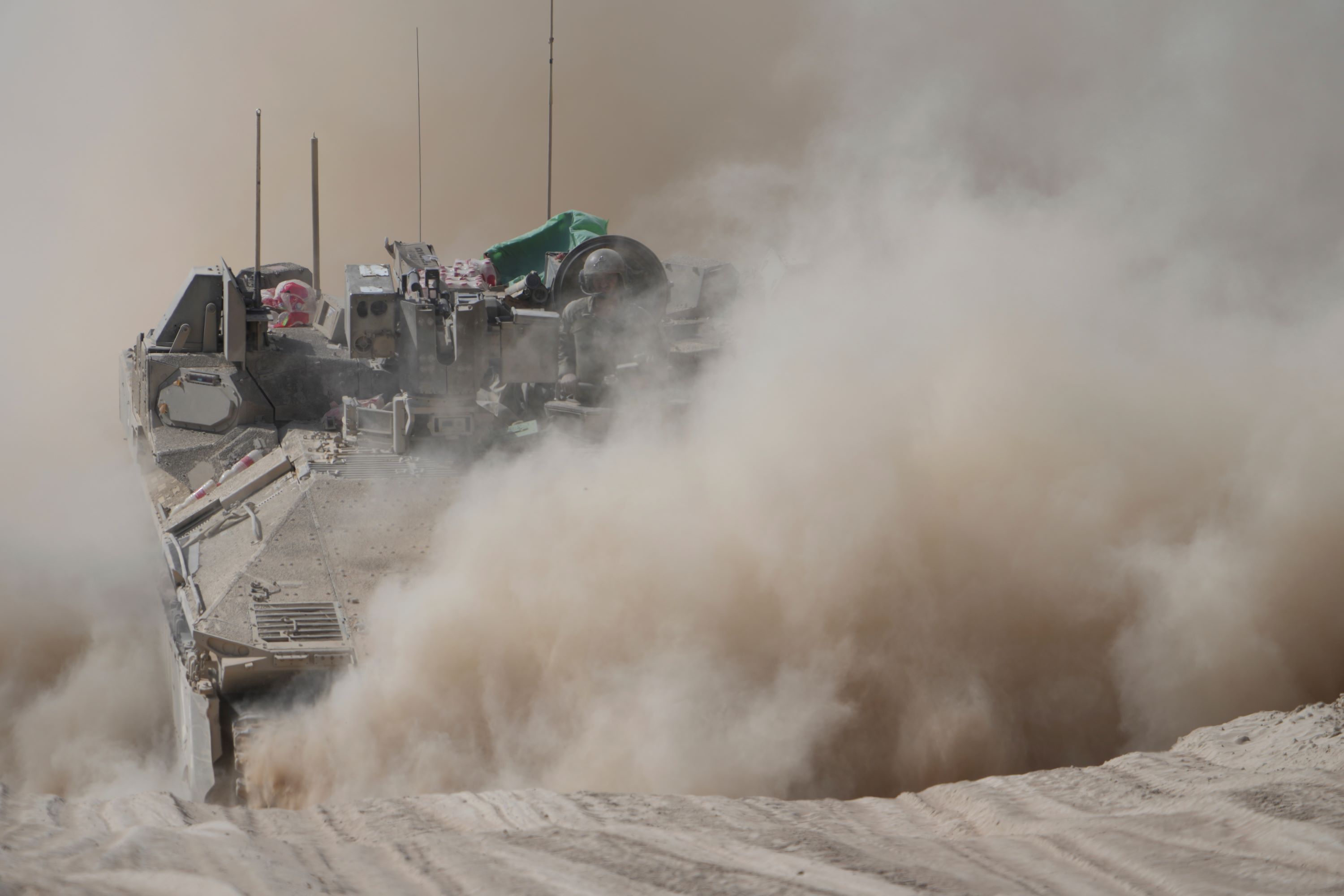
UNITED NATIONS/GAZA/JERUSALEM - Amid reports of killing and injuries among civilians seeking food in Gaza, UN humanitarians on Wednesday warned that failing logistics, including fuel and telecommunications, threaten vital deliveries.
The UN Office for the Coordination of Humanitarian Affairs (OCHA) said it continues to receive casualty reports.
Deadly encounters occur when throngs of civilians attempt to reach through militarized zones the few new designated aid distribution hubs sponsored by the United States and approved by Israel. The system compares with the UN and partners' method of handing aid to Gazans in their local communities.
"We reiterate in the strongest terms possible that no one should be forced to risk their lives to receive aid as people across Gaza are at risk of famine," OCHA said.
READ MORE: Netanyahu says 'significant progress' made in Gaza hostage talks
The office said a shortage of accessible fuel could force more health, water and sanitation facilities to shut down, affecting the most basic of relief programs. Vaccines, for one, require fuel for cold chain systems.
"The collapse of telecommunications systems, internet connectivity and emergency communication systems is a real threat," OCHA said. "This would cripple life-saving coordination and prevent affected communities from receiving critical information."
OCHA said UN attempts to access available stocks of fuel in Rafah continue to be rejected.
The office said that between April 13 and Monday, 29 out of 35 attempts to access fuel were denied by the Israeli authorities. A mission early Wednesday was also rejected.
OCHA added that on Tuesday alone, at least 12 out of 24 attempts to coordinate humanitarian movements inside Gaza were denied by the Israeli authorities, including new attempts to truck potable water to vulnerable people who remain in northern Gaza, retrieve critical fuel and nutrition supplies from Rafah in the south and repair vital roads.
The humanitarian office called for an enabling environment for aid operations in Gaza, including safe, rapid and unfettered access so that humanitarians can address the immense needs of more than 2 million people.
"International humanitarian law is crystal clear: If the population is inadequately supplied with the essentials for their survival, Israel must agree to humanitarian relief and facilitate it by all the means at its disposal," said OCHA.
ALSO READ: Greta Thunberg deported from Israel after Gaza boat seized
Farhan Haq, deputy spokesman for UN Secretary-General Antonio Guterres, said that since the limited resumption of humanitarian assistance into Gaza on May 19, the World Food Programme (WFP) reported it has only been able to bring in small amounts of life-saving food and aid, mainly due to delays or denials of permission.

Haq said during a regular briefing that expanded military operations were cited as a reason for the denials.
The WFP said that as of Tuesday, it was allowed to transport between May 19 and May 30 approximately 700 trucks of aid to the Kerem Shalom/Karem Abu Salem border crossing compared to the 600 to 700 trucks per day during the ceasefire earlier this year. The 700 trucks carried over 11,000 metric tons of food. But only 6,000 metric tons were allowed entry to Gaza, enough to support fewer than 300,000 people for a month with minimal daily food requirements.
"This is a small fraction of what is needed for a population of 2.1 million people and far too slow to meet the overwhelming needs," the WFP said.
The World Health Organization (WHO) and other partners continue to sound the alarm over shrinking access to the remaining health care facilities in Gaza, particularly Al Amal and Al Nasser hospitals in Khan Younis.
The WHO said that Al Amal Hospital, although still partially operational, is unable to accept new patients due to hostilities and its location within an area under displacement orders. The WHO reiterates that health care facilities must never be militarized and must always be protected.
READ MORE: Israel: Hamas commander Sinwar's body found in Gaza tunnel, probe on
The interim UN special coordinator for the Middle East peace process, Sigrid Kaag, with Sarah Poole, the deputy special coordinator and UN resident coordinator for the occupied Palestinian territory, visited Gaza City, where they met with partners to discuss challenges and UN engagement at all levels to advocate for a meaningful scale-up of humanitarian support and access in Gaza.
Death toll tops 55,000
The Palestinian death toll from ongoing Israeli attacks on the Gaza Strip has surpassed 55,000, health authorities in Gaza said in a statement on Wednesday.
During the past 24 hours, the Israeli military killed 120 people and wounded 474 others, bringing the total death toll to 55,104 and injuries to 127,394 since the Hamas-Israel conflict broke out in early October 2023, the health authorities added.
Also on Wednesday, the United Nations Relief and Works Agency for Palestine Refugees in the Near East (UNRWA) said on social media platform X that "the Israeli-American aid distribution model in Gaza is putting lives at risk. It is also a distraction from the ongoing atrocities and a waste of resources."
ALSO READ: Media shortcomings in covering Israel’s daily Gaza mass murders
"The humanitarian community in Gaza, including UNRWA, is ready and has the experience and expertise to reach people in need. The State of Israel must lift the siege and allow us safe and unhindered access to bring in aid at scale and distribute it safely," UNRWA added.

The Israel Defense Forces (IDF) on Wednesday said its troops continued their operations in the Gaza Strip and the Israeli air forces struck dozens of military targets across the Gaza Strip over the past day.
Hostage body returns to Israel
Israeli forces recovered the body of hostage Yair Yaakov from Gaza and returned it to Israel, his family and the Israeli media said on Wednesday.
Writing on Instagram, Yagil Yaakov, son of Yair Yaakov, thanked Israeli security forces for retrieving his father's body and stressed that he hopes the rest of the hostages can be brought back "in a deal".
ALSO READ: Israel says it killed Palestinian Mujahideen Brigades chief in Gaza
Isreal's state-owned Kan TV news confirmed that Israel Defense Forces troops and Shin Bet internal intelligence agents have returned the body of Yaakov to Israel in a joint operation.
Yair Yaakov, 59, was killed on the morning of Oct 7, 2023, when Hamas-led fighters stormed Kibbutz Nir Oz in southern Israel. His body was taken to Gaza. His sons, Or and Yagil, and his spouse, Meirav Tal, were released in the first hostage exchange deal between Israel and Hamas in November 2023.


